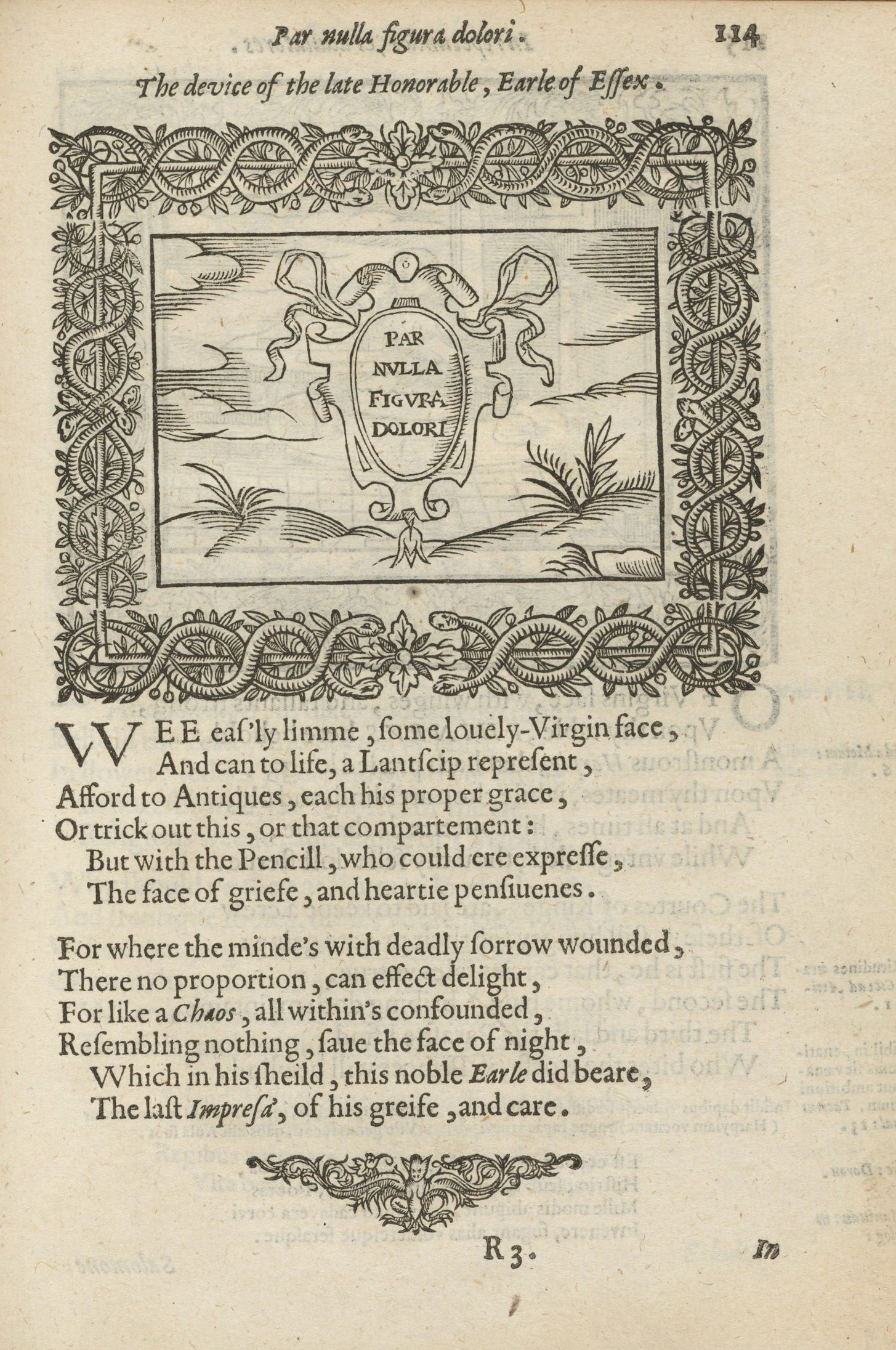Henry Peacham (born 1578) on:
[Wikipedia]
[Google]
[Amazon]
 Henry Peacham (born 1578, d. in or after 1644) was an English poet and writer, known today primarily for his book, ''The Compleat Gentleman'', first printed in 1622.
Henry Peacham (born 1578, d. in or after 1644) was an English poet and writer, known today primarily for his book, ''The Compleat Gentleman'', first printed in 1622.

 Henry Peacham (born 1578, d. in or after 1644) was an English poet and writer, known today primarily for his book, ''The Compleat Gentleman'', first printed in 1622.
Henry Peacham (born 1578, d. in or after 1644) was an English poet and writer, known today primarily for his book, ''The Compleat Gentleman'', first printed in 1622.
Biography
Son of Henry Peacham the Elder, a clergyman, Peacham was a graduate ofTrinity College, Cambridge
Trinity College is a Colleges of the University of Cambridge, constituent college of the University of Cambridge. Founded in 1546 by King Henry VIII, Trinity is one of the largest Cambridge colleges, with the largest financial endowment of any ...
. In 1603, at the age of twenty-five the younger Peacham was a schoolmaster
A schoolmaster, or simply master, is a male school teacher. The usage first occurred in England in the Late Middle Ages and early modern period. At that time, most schools were one-room or two-room schools and had only one or two such teacher ...
at Kimbolton Grammar School. In 1612 he published a book of printed emblems called ''Minerva Britanna'', based on a manuscript which is believed to have been presented to Henry Frederick, Prince of Wales
Henry Frederick, Prince of Wales, (19 February 1594 – 6 November 1612), was the eldest son and heir apparent of King James VI and I and Anne of Denmark, Queen Anne. His name derives from his grandfathers: Henry Stuart, Lord Darnley; and Fr ...
, in 1610.Elizabeth Hageman, Katherine Conway, ''Resurrecting Elizabeth I in Seventeenth-century England'' (2007), p. 73
Peacham's ''The Compleat Gentleman'' is presented as a guidebook
A guide book or travel guide is "a book of information about a place designed for the use of visitors or tourists". It will usually include information about sights, accommodation, restaurants, transportation, and activities. Maps of varying det ...
on the arts for young men of good birth. In it, he discusses what writers, poets, composers, philosophers, and artists gentlemen
''Gentleman'' (Old French: ''gentilz hom'', gentle + man; abbreviated ''gent.'') is a term for a chivalrous, courteous, or honorable man. Originally, ''gentleman'' was the lowest rank of the landed gentry of England, ranking below an esquire ...
should study in order to become well-educated. Because he mentions a large number of contemporary artistic figures, he is often cited as a primary source in studies of Renaissance
The Renaissance ( , ) is a Periodization, period of history and a European cultural movement covering the 15th and 16th centuries. It marked the transition from the Middle Ages to modernity and was characterized by an effort to revive and sur ...
artists.
A representative passage from ''The Compleat Gentleman'':
:"For composition
Composition or Compositions may refer to:
Arts and literature
*Composition (dance), practice and teaching of choreography
* Composition (language), in literature and rhetoric, producing a work in spoken tradition and written discourse, to include ...
, I prefer next Ludovico de Victoria, a most judicious and a sweet composer: after him Orlando di Lasso, a very rare and excellent Author, who lived some forty years since in the court of the Duke of Bavier."

Notes
References
*Further reading
* Edward Chaney, ''The Evolution of English Collecting'' (New Haven and London, Yale University Press, 2003) * * *Alan R. Young, ''Henry Peacham'', Boston: Twayne, 1979. 1578 births Alumni of Trinity College, Cambridge English writers English male writers 1640s deaths {{england-writer-stub